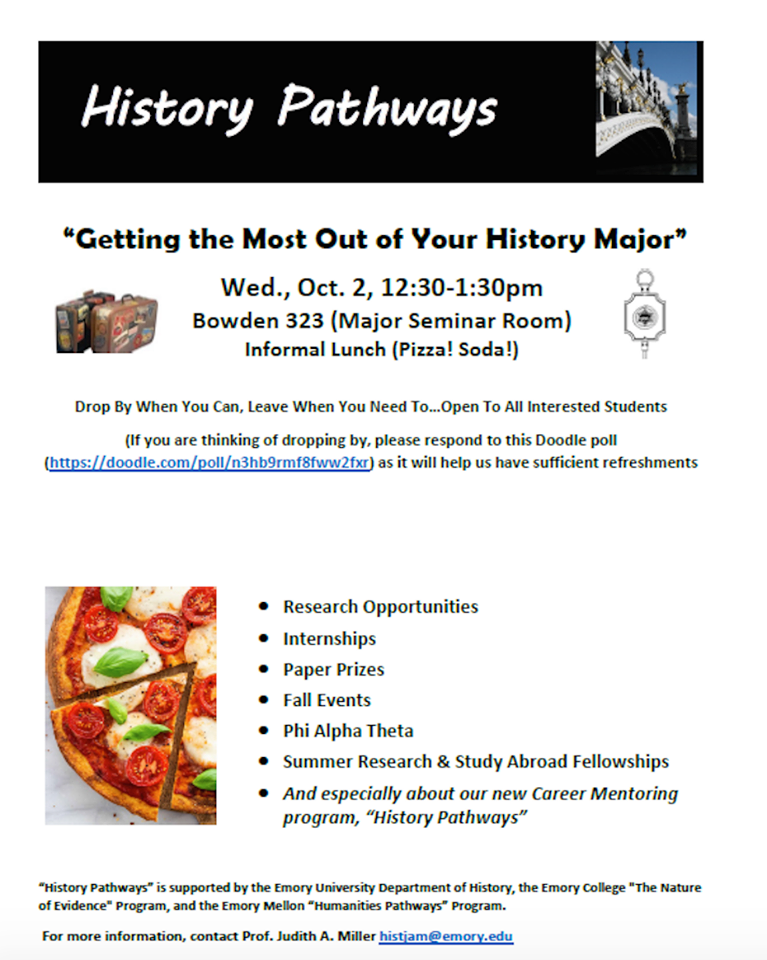Annually Emory’s Woodruff Library recognizes outstanding research among undergraduates in the Emory College with the Elizabeth Long Atwood Undergraduate Research Awards. Eligible students must use the library’s collections and research resources in their original papers, digital projects, or posters and show evidence of critical analysis in their research skills.
Congratulations to two history majors who won this award for 2019. Ellie Coe (class of 2022), is a history and Russian & East European studies double major. She won for her project, “The Soldier’s Queue in the Eighteenth Century.” Hannah Fuller (class of 2020) is a history major and was recognized for her project, “Jemima Wilkinson: The Genderless Feminist of the Enlightenment.” Both Coe and Miller completed their research under the supervision of Dr. Judith A. Miller, Associate Professor of History.
Read more about the Atwood Awards, including former history students who have won the prize, here: The Elizabeth Long Atwood Undergraduate Research Award.

